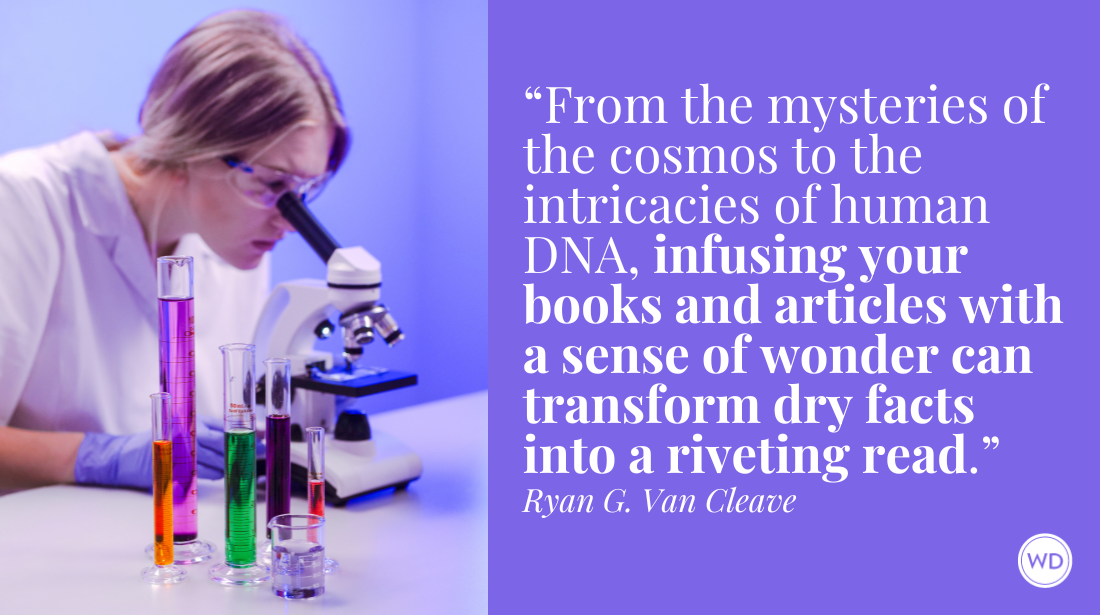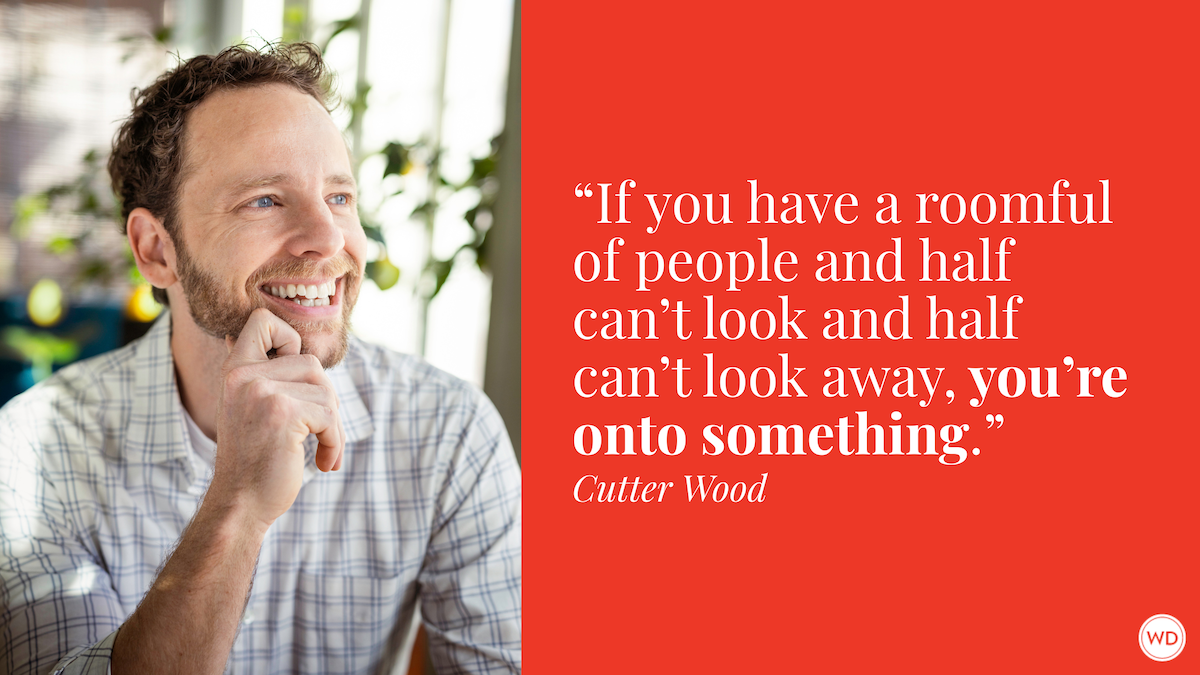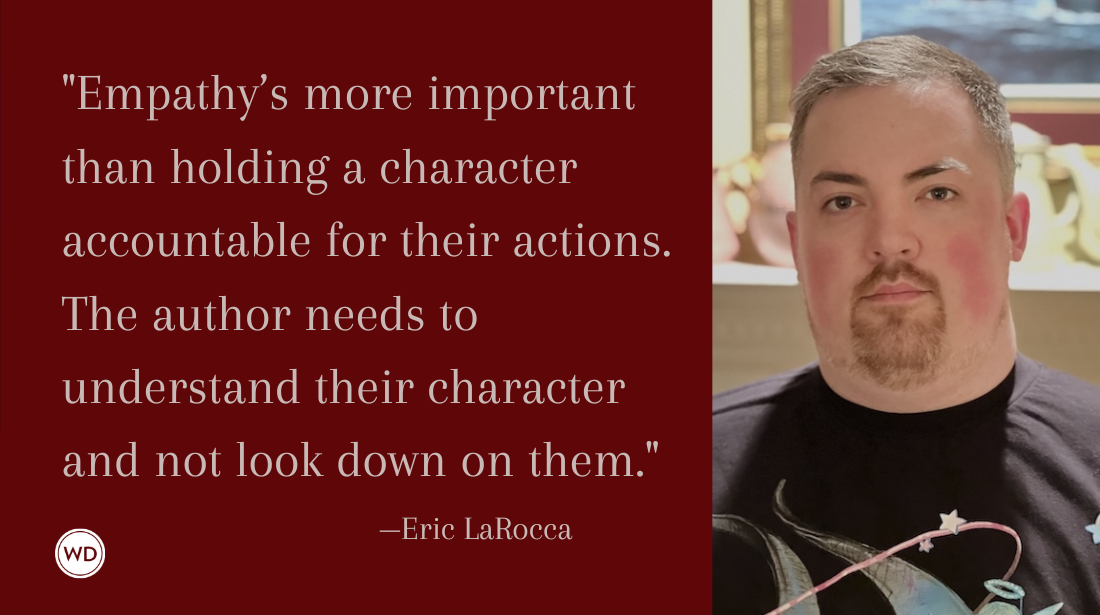Literary Pick-Me-Ups: 30 Writing Quotes
To me, they can be like poems—quick, insightful bursts of meaning or humor; encapsulations of small but powerful moments that might help you get through other small but taxing moments…
To me, they can be like poems—quick, insightful bursts of meaning or humor; encapsulations of small but powerful moments that might help you get through other small but taxing moments in a manuscript, in an article, off the page.
Ah, the zen of writing quotes.
At the end of this month, I’ll be bringing back the Top 20 Lessons From WD series I first ran in 2009—basically, a retrospect of quotable quips featured in the magazine in the last year. To gear up for the series, I looked back through some of my favorite quotes from last year’s entries … and fell headlong into an afternoon odyssey where I rounded up some lines from interviews/articles that we’ve run in the magazine, random quotes I’ve spotlighted in WD, and a few of my favorite non-WD writing passages.
They’re all below (and a regular Promptly prompt follows). What would you add to the quote list?
* * *
“The road to hell is paved with works-in-progress.”
—Philip Roth
“The road to hell is paved with adverbs.”
—Stephen King
“Who wants to become a writer? And why? Because it’s the answer to everything. … It’s the streaming reason for living. To note, to pin down, to build up, to create, to be astonished at nothing, to cherish the oddities, to let nothing go down the drain, to make something, to make a great flower out of life, even if it’s a cactus.”
—Enid Bagnold
“To gain your own voice, you have to forget about having it heard.”
—Allen Ginsberg, WD
“Cheat your landlord if you can and must, but do not try to shortchange the Muse. It cannot be done. You can't fake quality any more than you can fake a good meal.”
—William S. Burroughs
“All readers come to fiction as willing accomplices to your lies. Such is the basic goodwill contract made the moment we pick up a work of fiction.”
—Steve Almond, WD
“Writing a book is a horrible, exhausting struggle, like a long bout of some painful illness. One would never undertake such a thing if one were not driven on by some demon whom one can neither resist nor understand.”
—George Orwell
“It ain’t whatcha write, it’s the way atcha write it.”
—Jack Kerouac, WD
“Not a wasted word. This has been a main point to my literary thinking all my life.”
—Hunter S. Thompson
“When I sit down to write a book, I do not say to myself, ‘I am going to produce a work of art.’ I write it because there is some lie that I want to expose, some fact to which I want to draw attention, and my initial concern is to get a hearing.”
—George Orwell
“I don’t care if a reader hates one of my stories, just as long as he finishes the book.”
—Roald Dahl, WD
“The freelance writer is a man who is paid per piece or per word or perhaps.”
—Robert Benchley
“We are all apprentices in a craft where no one ever becomes a master.”
—Ernest Hemingway
“Every secret of a writer’s soul, every experience of his life, every quality of his mind, is written large in his works.”
—Virginia Woolf
“Making people believe the unbelievable is no trick; it’s work. … Belief and reader absorption come in the details: An overturned tricycle in the gutter of an abandoned neighborhood can stand for everything.”
—Stephen King, WD
“If a nation loses its storytellers, it loses its childhood.”
—Peter Handke
“To defend what you’ve written is a sign that you are alive.”
—William Zinsser, WD
“If I had not existed, someone else would have written me, Hemingway, Dostoyevsky, all of us.”
—William Faulkner
“For your born writer, nothing is so healing as the realization that he has come upon the right word.”
—Catherine Drinker Bowen
“Each writer is born with a repertory company in his head. Shakespeare has perhaps 20 players. … I have 10 or so, and that’s a lot. As you get older, you become more skillful at casting them.”
—Gore Vidal
“We’re past the age of heroes and hero kings. … Most of our lives are basically mundane and dull, and it’s up to the writer to find ways to make them interesting.”
—John Updike, WD
“The greatest part of a writer’s time is spent in reading, in order to write; a man will turn over half a library to make one book.”
—Samuel Johnson
“If it sounds like writing, I rewrite it. Or, if proper usage gets in the way, it may have to go. I can’t allow what we learned in English composition to disrupt the sound and rhythm of the narrative.”
—Elmore Leonard
“Write. Rewrite. When not writing or rewriting, read. I know of no shortcuts.”
—Larry L. King, WD
“Know your literary tradition, savor it, steal from it, but when you sit down to write, forget about worshiping greatness and fetishizing masterpieces.”
—Allegra Goodman
“I’m out there to clean the plate. Once they’ve read what I’ve written on a subject, I want them to think, ‘That’s it!’ I think the highest aspiration people in our trade can have is that once they’ve written a story, nobody will ever try it again.”
—Richard Ben Cramer
“There are no laws for the novel. There never have been, nor can there ever be.”
—Doris Lessing
“Style means the right word. The rest matters little.”
—Jules Renard
“Style is to forget all styles.”
—Jules Renard
“I do not over-intellectualize the production process. I try to keep it simple: Tell the damned story.”
—Tom Clancy, WD
(By the way, if you're hungry for more quotes, check out our 90th Anniversary issue, featuring our editor's roundup of 90 great bits of advice on all things writing, culled from our 90-year history.)
* * *
WRITING PROMPT:Catchphrase
Feel free to take the following prompt home or post a
response (500 words or fewer, funny, sad or stirring) in the Comments section below.
By posting, you’ll be automatically entered in our
occasional around-the-office swag drawings.
If
you’re having trouble with the
captcha code sticking, e-mail your piece and the prompt to me at
writersdigest@fwmedia.com, with “Promptly” in the subject line, and I’ll
make sure it gets up.
His father said it once when he was a kid, and it had such an impact on him that it
became his mantra, his catchphrase, his go-to quote. For better or worse. Write a scene in which he uses
it today.
MORE RESOURCES FOR WRITERS
• Online webinars for writers
• Online
workshops for writers
• Get
Published with Writer’s Market
• Instantly download writing magazines, books, videos
&
more
• Sign
up for your
Writer’s Digest email newsletter & receive a FREE e-book
Zachary Petit is a freelance journalist and editor, and a lifelong literary and design nerd. He's also a former senior managing editor of Writer’s Digest magazine. Follow him on Twitter @ZacharyPetit.








